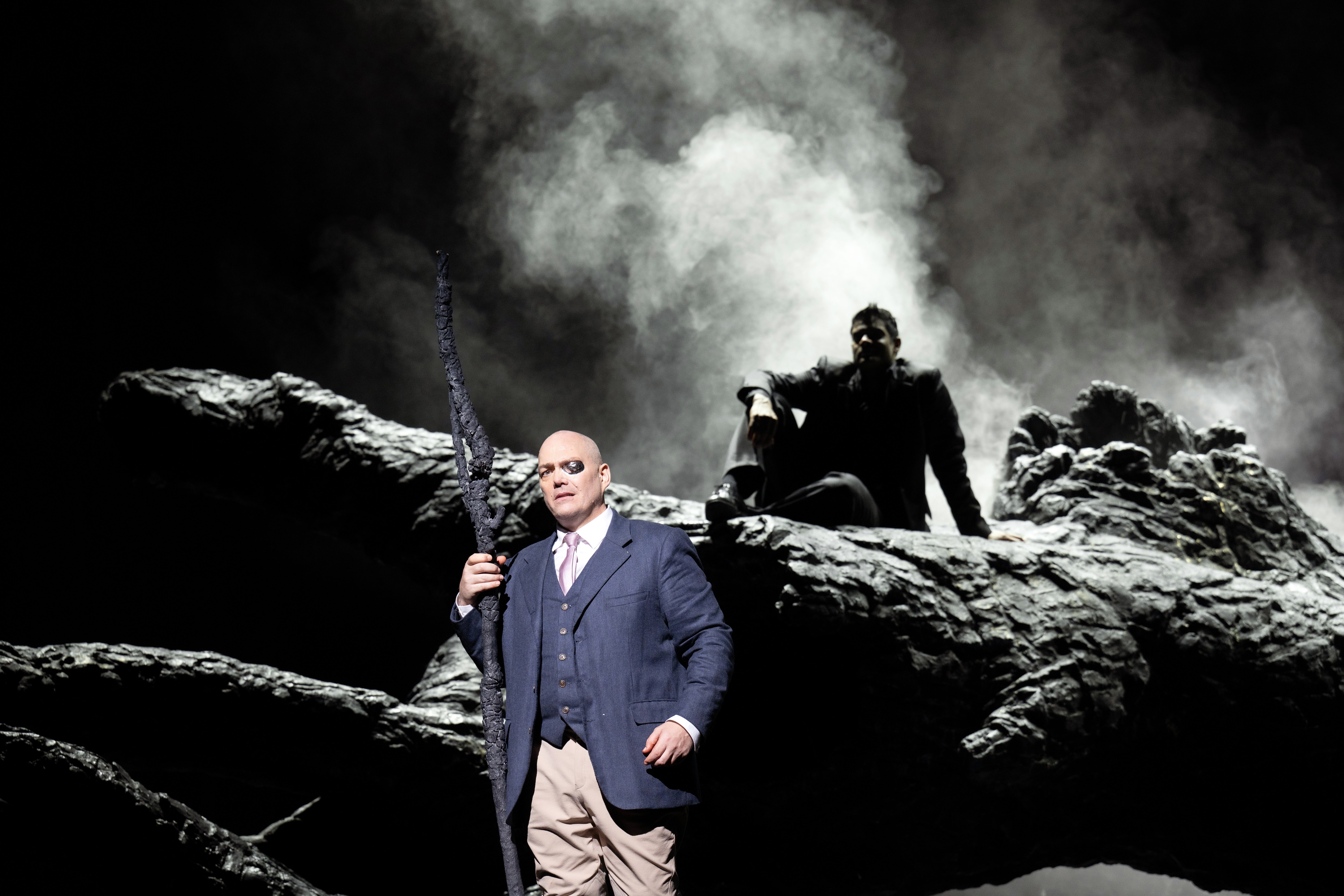
The challenge of mounting a new production of Wagner’s Ring that’s faithful to its mythic origins but which also speaks to our times is one that no opera house worth its salt wants to shirk. By entrusting its new cycle to the maverick Australian director Barrie Kosky, Covent Garden could be sure of securing a vibrantly theatrical presentation. And there’s enough ingenuity in the opening Rheingold to promise a rewarding experience as the cycle develops.
Kosky’s most striking invention is the incorporation of a shrivelled Earth Mother (played gamely by the octogenarian Rose Knox-Peebles) who is both the visual embodiment of Wotan’s initial crime against nature (back in the mists of antiquity he hacked off a branch of the World Ash Tree to serve as his world-ruling spear) and a witness to the ensuing ecological catastrophe.
This wizened figure registers Alberich’s humiliation at the hands of the Rhinemaidens, she tries to prevent his wresting of the gold from the depths of the Rhine and in Nibelheim she observes the industrial production of liquid gold from the very hub of a plant that resembles a monstrous beast of the deep.
Rufus Didwiszus’s economical unitary set suggests the withered World Ash Tree, a mise-en-scène that serves for the submarine (though there’s no water), subterranean and mountain-top locations, which makes it all the more inexcusable that the curtain is brought down for all three scene changes, fatally undermining Wagner’s symbolic transformations. This largely monochrome set is nevertheless handsomely lit by Alessandro Carletti and irradiated by splashes of colour, with a spectacularly technicolour rainbow bridge at the end.

Victoria Behr’s costumes establish the gods as members of an elite polo set and the giant Fafner borrows a mallet to club his brother Fasolt to death with horrific brutality. Wotan’s wife Fricka is here played by the excellent Marina Prudenskaya.
The great strength of this Rheingold is the very detailed work that has clearly gone on in the rehearsal room, conductor Antonio Pappano and director Kosky consistently achieving the kind of musico-dramatic fusion so crucial to Wagner’s vision.
Several members of the uniformly strong cast are new or nearly new to their roles, enabling Pappano and Kosky to draw fresh interpretations. Christopher Maltman, who made his name as a lieder singer, more recently moving into heavier roles, is now ripe for the part of Wotan, combining a focused, powerful tonal production with an alert response to the text. Christopher Purves similarly brings a resourcefully modulated delivery to the role of Alberich and his diction – like that of the entire cast – is also exemplary.
Insung Sim delineates Fasolt’s infatuation with Freia (Kiandra Howarth) with heart-melting tenderness. Sean Panikkar’s cackling Loge, if potentially irritating, neatly catches the trickster’s amorality. Other fine contributions include those of Wiebke Lehmkuhl (Erda), Brenton Ryan (Mime), and Soloman Howard (Fafner).
Maltman is well on the way to becoming a truly great Wotan and assuming Kosky develops a conceptual framework to match his theatrical imagination, this could be a Ring to savour as it unfolds over the coming three years.
Royal Opera, to September 29; roh.org.uk







